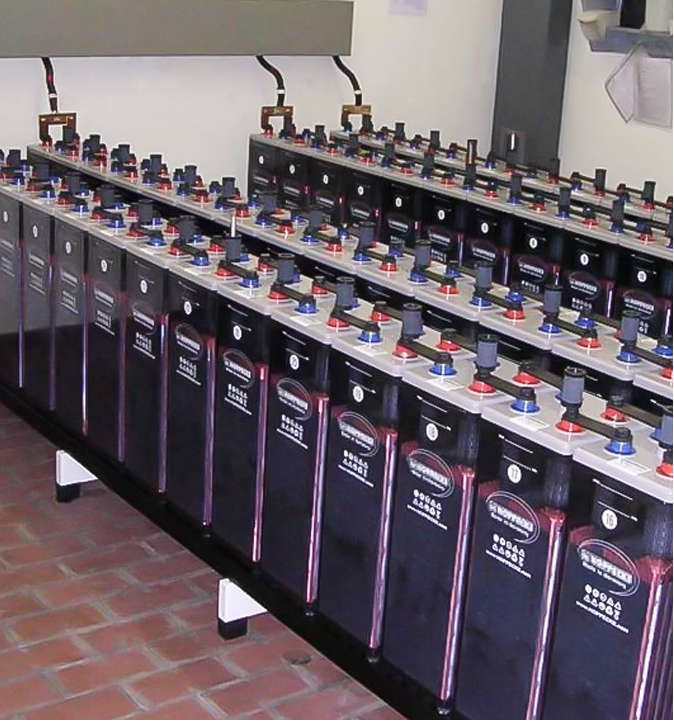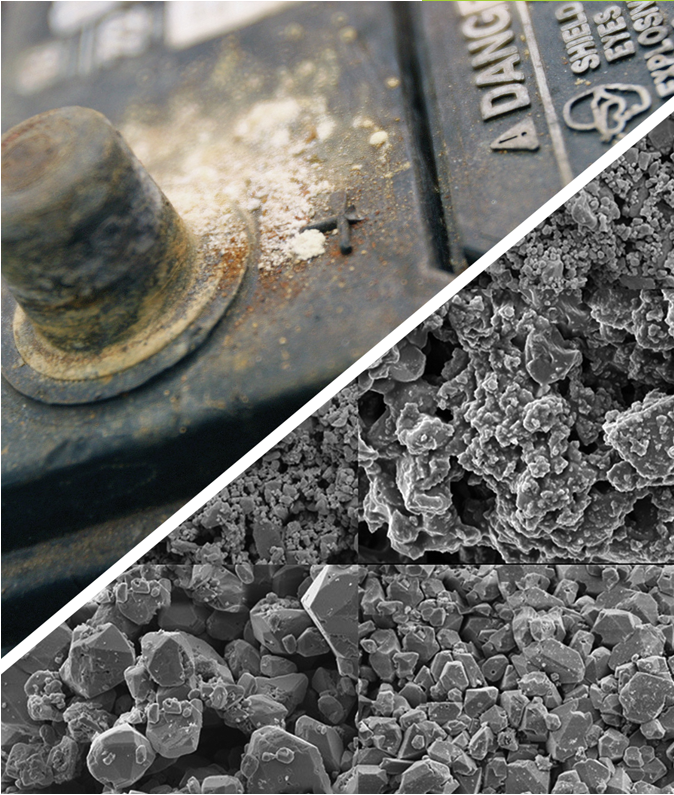
Why and How Batteries Fail
The performance of lead acid batteries can be compromised by long use,temperature extremes, irregular charging cycles and short charging/discharging cycles – all of which are everyday realities for most of our customers.
The result of these changing conditions is there is a build-up of sulfation inside the battery and reducing the battery shelf life.
Common problems with lead acid batteries include:

Sulfation

Electrolyte Loss

Electrolyte Stratification

Separator Failure
What Is
SULFATION?
Sulfation is the crystallization of the Lead sulfate (PbS04) on the electrode plates of lead-acid batteries. Some lead sulfate slowly converts to a stable crystalline form that no longer dissolves on recharging. As a result not all the lead sulfate is returned to the battery electrode plates and the amount of usable active materials which are necessary for electro chemical reaction declines. Effectively decreasing the capacity of the battery.
Sulfation occurs in almost all lead acid batteries during normal operations, but can be exacerbated by difficult conditions or hard use.
